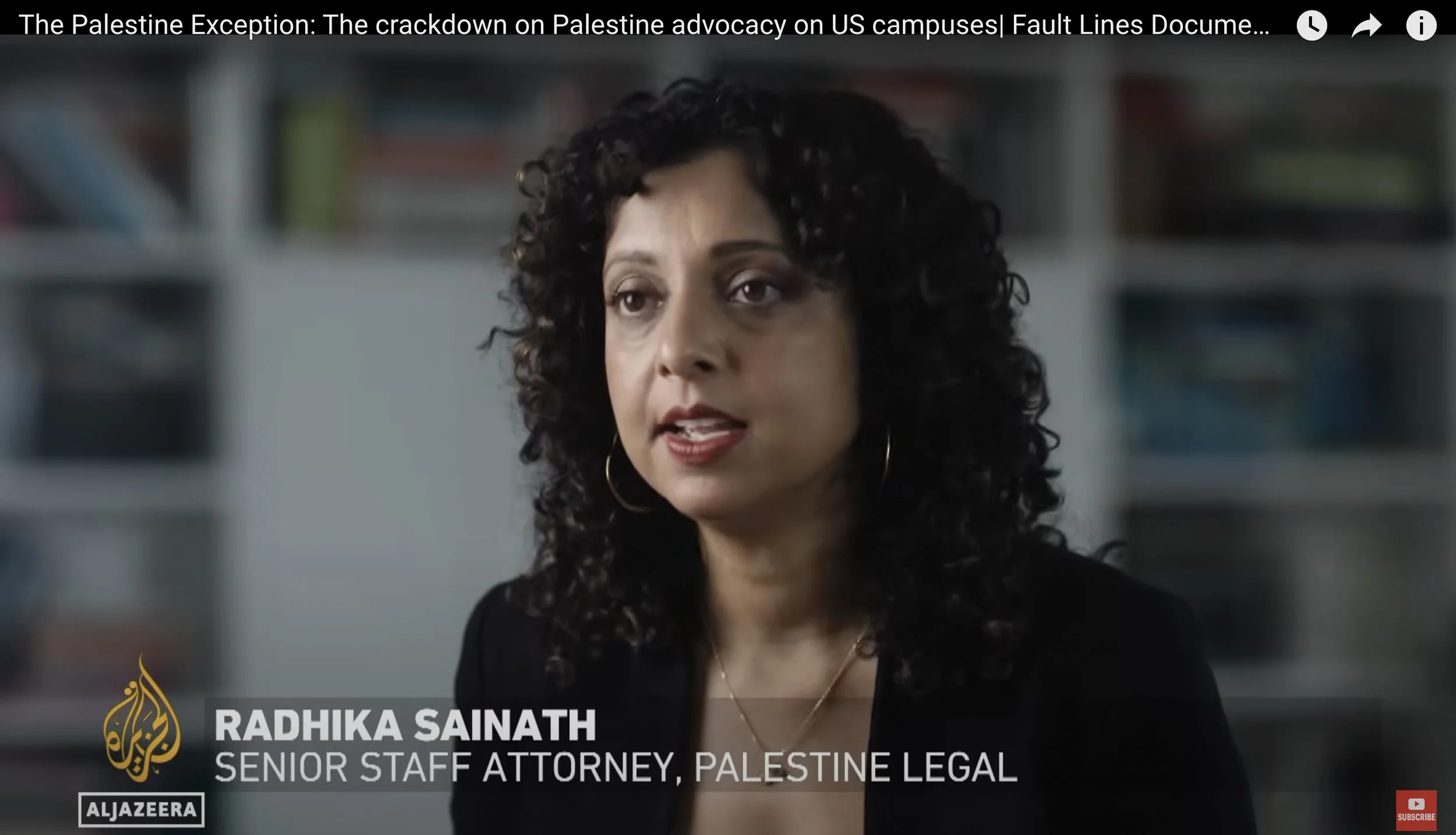Palestine Legal Submits Report to UN on Canary Mission Discrimination
/United Nations headquarters in Geneva, Switzerland (Credit: SAPhotog / Shutterstock.com)
Palestine Legal sent the the following submission last fall regarding the use of the anonymous blacklisting site Canary Mission against Arabs and Muslims to the United Nations Special Rapporteur on contemporary forms of racism, racial discrimination, xenophobia and related intolerance. The rapporteur cited the submission in her 2020 report on new information technologies, racial equality, and non-discrimination, explaining that Canary Mission and its use by Israeli border officials “violate equality and non-discrimination rights, as well as freedom of expression protections, and leave those whose rights are violated with limited avenues of redress.”
Palestine Legal is an independent legal advocacy organization dedicated to protecting the civil and constitutional rights of people in the US who speak out for Palestinian freedom. Between 2014 and 2019, Palestine Legal responded to nearly 1,500 incidents of suppression, and over 400 legal questions from activists fearful that their rights would be violated.
Many of our clients have been harmed by Canary Mission, an anonymously-run blacklisting site that targets students, professors, and community activists who have publicly advocated for Palestinian rights. The website describes its mission as “investigat[ing] hatred across the entire political spectrum” The vast majority of individuals, however, are profiled solely because they are advocates for Palestinian rights and/or support BDS (boycott, divestment, sanctions), a set of non-violent tactics that seek to hold Israel accountable until it ceases its violations of international law.
As of January 2019, the site had profiles of 1,853 individuals and 563 professors. Canary Mission targets Arab and Muslim students and faculty in particular. Blacklisted individuals have reported being questioned by employers, graduate schools, and the FBI about their support for Palestinian rights after Canary Mission reached out. They have been put on leave, been denied bank accounts, and received death threats.
Canary Mission has also been used in the context of border enforcement and administration by Israeli officials to question and deny entry to Israel and occupied Palestinian territory. Palestinians returning home, students, and faculty have reported seeing print-outs of their Canary Mission profiles when passing through Israeli border control and being questioned about content on those profiles. As documented in our 2018 Year-in-Review, Palestine Legal received several reports of Israeli security officials relying on the blacklisting site Canary Mission during airport screening.
The case of Lara Alqasem offers one example of how the Canary Mission blacklist has been used by Israeli officials to deny entry to travelers. Lara Alqasem, a Palestinian-American student who had obtained a valid visa in the U.S. to study at Hebrew University, was barred from entering Israel on arrival. Alqasem appealed the deportation order. Documents related to her appeal obtained by Ha’aretz “show clearly that the [Canary Mission] site is indeed the No. 1 source of information for the decision to bar entry to Alqasem.” The links below detail the experiences of several others who faced questioning and/or were denied entry by Israeli officials, something that is especially devastating for Palestinians trying to visit family in Palestine.
Fears of losing or not being able to secure a job, being targeted by law enforcement, prevented from visiting relatives in Palestine, or facing the threats and harassment that stem from being blacklisted have led some to abstain from engaging publicly in advocacy or support for Palestinian rights. In short, this kind of online harassment results in significant chilling of human rights advocacy in the U.S.
Please see below for some background materials. We would be happy to engage more with you about the incidents we have documented.
Background materials on use of Canary Mission in the context of border enforcement and administration:
Canary Mission’s Threat Grows, From U.S. Campuses To The Israeli Border
Israel Denies Entry to American Student Even Though She Had a Visa
Israeli Court Rejects American Visa-holding Student's Appeal; to Be Deported for Backing BDS
Banned From Israel: A Q&A With Law Professor Katherine Franke
For more background on Canary Mission:
For more background on suppression of advocacy for Palestinian rights in the US:












